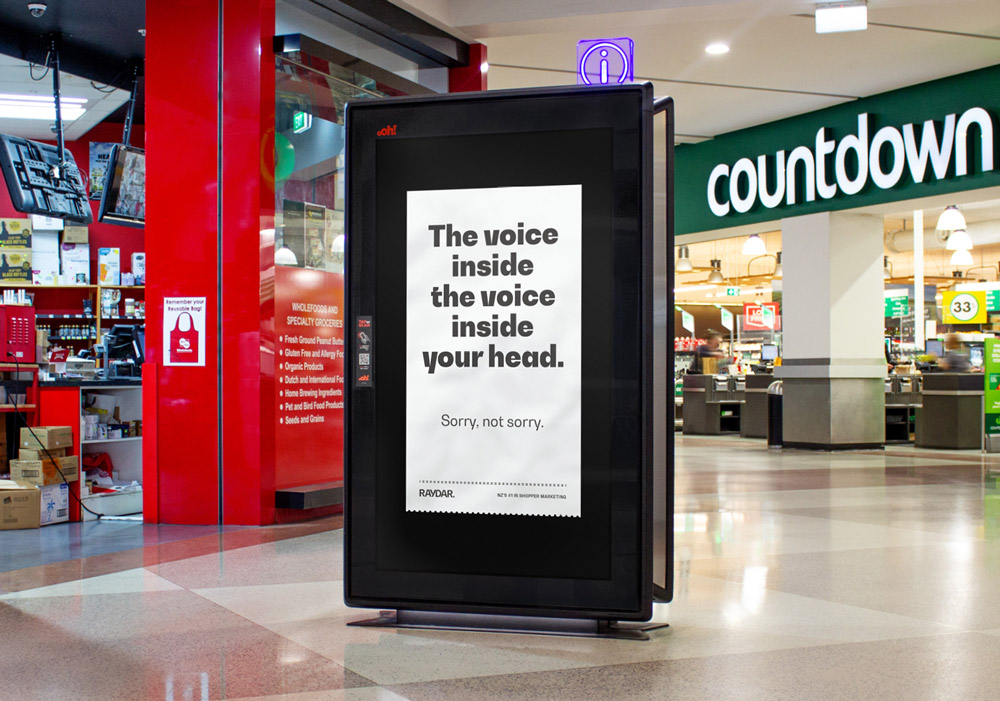AUCKLAND, Monday: Enter any supermarket with a clear shopping list, and you’ll likely leave with an unexpected array of items. As costs rise, this puzzling trend becomes more pronounced. But fear not, an explanation has surfaced: it’s not just a lack of willpower altering your plans; it’s the influence of behavioral science, or as Auckland’s shopper agency Raydar terms it, their “secret sauce.”
The science in question includes a few fundamental methodologies, often bantered around as buzzwords like “nudging”, “priming”, and “System one thinking”. While these may breeze over your conscious mind, they certainly settle into the subconscious with ease.
Tony Clewett, Raydar’s Creative Director says, “Creativity and science – two words that aren’t often used together. Bugger that. Behavioural science makes our creative work harder and smarter. So much smarter, you don’t even question it.”
Turns out, your subconscious emotions aren’t just targeted by rom-com directors and puppy adoption drives; they, too, are critical when deciding which deodorant or multivitamin brand to buy.
Sounds like a far reach – you can almost hear the symphony of “ppffttts” through the screen – but, as Planning Director Paul Dobbin puts it, “If you didn’t notice our work at work, great – that’s the first step.”
“Behavioural science makes our creative work harder and smarter. So much smarter, you don’t even question it.”
“Mid-cost-of-living crisis, consumers are more willing to flex their brand loyalty and buying behaviours if it means better value for them. That’s how we help. With proven techniques, we can grab attention, reduce friction, and connect with the right people,” Dobbin adds.
Therein lies the big question: Should Raydar apologise for influencing consumers’ minds towards certain purchases. Or, be applauded for creatively leveraging neural shortcuts that, at the end of the day, help relieve the cognitive load of overstimulating environments?
The answer probably depends on who you ask; when posed the question of whether it’s fair play to use behavioural science as a tool, Raydar’s Managing Director Kristyna Hotchin says, “Absolutely!”
“It’s not about taking away choice, but effectively speaking a subconscious language that genuinely resonates and connects with consumers’ wants and needs. That’s how we give our clients a competitive edge, while adding a little magic to everyday admin.”
Raydar’s Sorry, Not Sorry campaign is live and back-handedly apologising in mall media near you. Perhaps you’ll thank them for the encouragement to shop without auto-pilot. Or, perhaps, the subconscious just isn’t interested in listening to logic – a little like your wallet.
CREDITS
Agency: Raydar
Media: Hearts & Science
Share this Post



